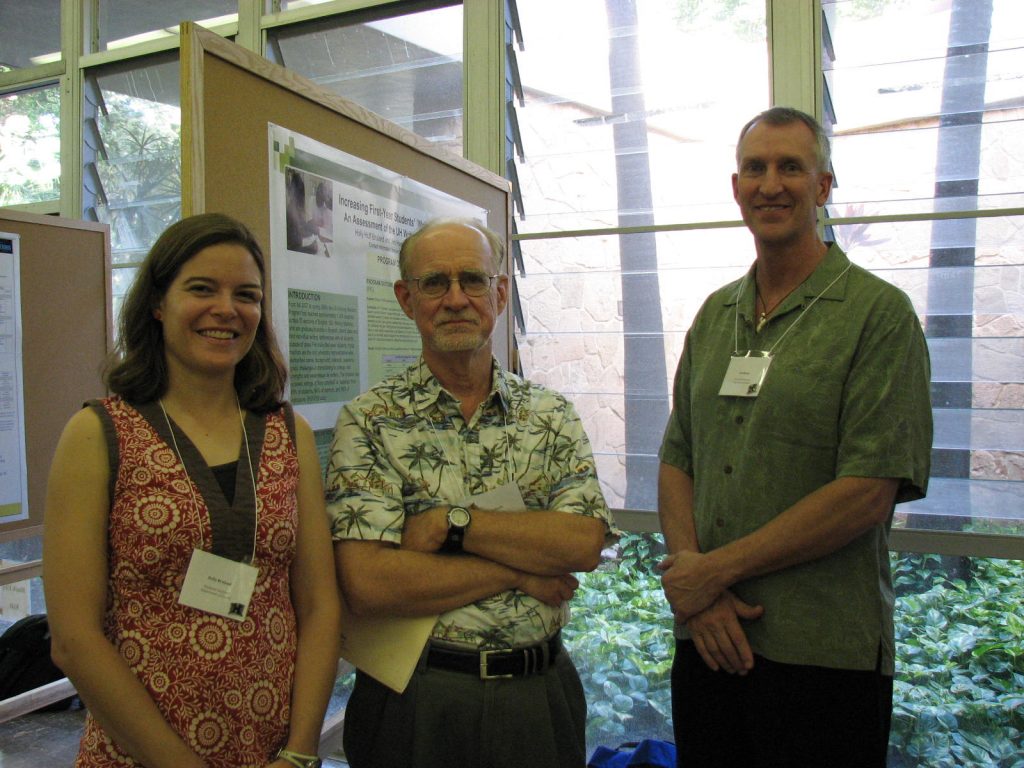
From fall 2007 to spring 2009, the UH Writing Mentors Program has reached approximately 1,300 students across 70 sections of English 100. Writing Mentors, who are graduate students in English, attend class and hold individual writing conferences with all students outside of class. For many first-year students, these mentors are the only university representative who learns their name, background, interests, academic goals, challenges in transitioning to college, and strengths and weaknesses as a writer. The initiative has received rankings of “satisfied” or “very satisfied” from 89% of students, 94% of mentors, and 98% of instructors; furthermore 85% of first-year students surveyed claimed that their mentor helped them in their transition to college. Program administrators have engaged in multiple forms of assessment including the following: a large-scale scoring of first-year student writing that demonstrated mentored students out-performing their non-mentored counterparts in statistically significantly ways in the categories of content, organization, language & style, and meta-cognition/ reflective ability; standardized logs tracking every mentor-student conference; analysis of longitudinal data on how mentored versus non-mentored students perform as writers and students post-English 100; interviews with focus groups of mentors, students, and instructors; and written end-of-semester evaluations from all participants. Our poster will summarize key results of these assessment activities and highlight the ways in which they have led to a) programmatic improvements each semester; b) peer-reviewed publications in the fields of Composition Studies and the Scholarship of Teaching and Learning (SoTL), each of which underscore the role of mentoring in student retention; c) arguments for continued funding. By Holly Huff Bruland and Jim Henry
Recommended Citation:
Bruland, H., Henry, J. (2009, December). The UH Writing Mentors Program: Multi-Perspectival Assessment. Poster session presented at the Assessment for Curricular Improvement Poster Exhibit at the University of Hawai’i at Mānoa, Honolulu, HI.
